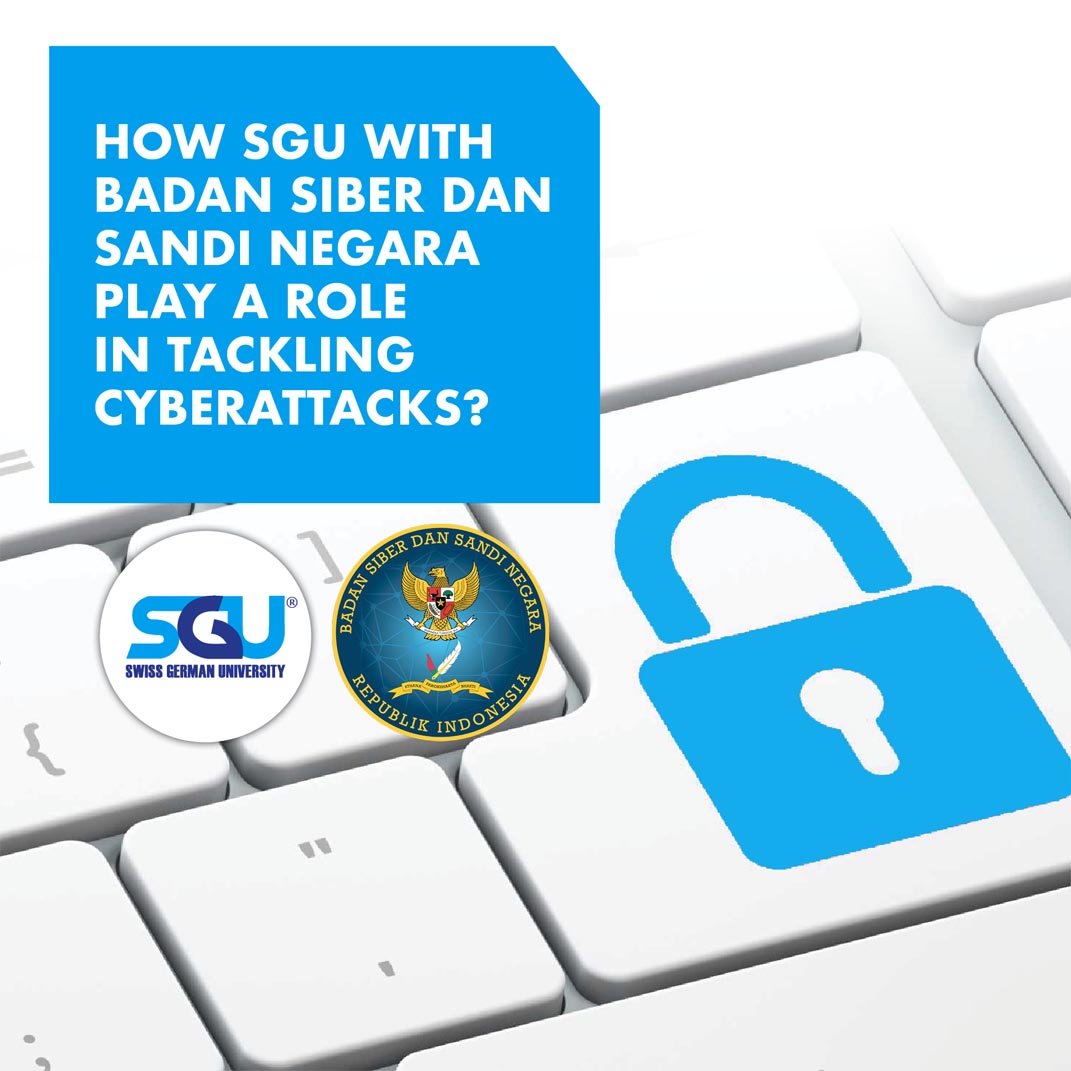
How SGU with Badan Siber dan Sandi Negara Play a Role in Tackling Cyberattacks?
Swiss German University invented a Cybersecurity Dashboard that can detect and map cyberattacks in an area. This Research continues to be developed every year and has been implemented by Badan Siber dan Sandi Negara (BSSN) to detect cyberattack threats in Indonesia.
The Security Dashboard can tell us how many cyberattacks have attacked an area within a certain time. The system can also tell us which country the attack came from. Not only that, the Cybersecurity Dashboard can also analyze the types of cyberattacks, whether Trojans, Ransom, or others.
For example, SGU has installed four active sensors on our campus in Tangerang. Within 2 weeks (January 8-January 22, 2021), Dashboard security has detected 8,461,016 cyber threats. A total of 2.6 million cyber threats came from India, Vietnam as many as 894 k, Indonesia 735 k, as well as other countries. The top 3 types of cyber threats detected are TrojanDownloader, Ransom, and Trojan.
Research Project Leader, Charles Lim, said SGU has been researching cybersecurity for a long time. SGU is the first university in Indonesia to have a special cybersecurity curriculum. Since 2009, Master of Information Technology students can choose one of two concentration courses, namely Data Science Cyber Security or Data Science Business Informatics.
Cooperation with BSSN
Cyberattacks continue to increase in both number and type. This can be fatal and detrimental. “An example is the case when we were attacked by malware which caused data to be lost. The attacker can threaten and ask for money in Bitcoin if the data wants to come back,” said Charles, who is also an active lecturer in the SGU Master of Information Technology.
To tackle the cyberattack, the government researched with several universities. SGU is the first university to collaborate with the government to conduct cybersecurity research.
In 2012, SGU collaborated with the Ministry of Communication and Information Technology to develop a honeypot designed to gather attacker interactions in different locations and organizations. Thus, we can study the behavior of the attacker and get an overview of cybersecurity threats. The Ministry of Communication and Information Technology has implemented this honeypot in six provinces in Indonesia.
Read More:
Research collaborations continue when BSSN takes over the role of the Ministry of Communication and Information Technology in maintaining cybersecurity. The results of honeypot detection are then visualized using the threat map portal which is currently implemented by BSSN.
Implemented in Vietnam and Cambodia
Charles said research is still ongoing to identify more types of attacks that occurred. The research also involved SGU undergraduate and postgraduate students. “There are several attacks that fall into the unknown category, these are still to be investigated,” he said.
The detection system is also planned to be implemented in two other ASEAN countries, Vietnam and Cambodia. This aims to be able to enrich knowledge about the types of malware attacks. Collaborative research is carried out through cybersecurity agencies in each country.
SGU also plans to publish the Cybersecurity Dashboard portal this year. It is hoped that this system can help the public to get information about cybersecurity in Indonesia.
Charles Lim received two times (2019 and 2020) research grants from The Information Society Innovation Fund (ISIF Asia) for his research in the Honeynet Threat Sharing Platform. He is considered to have contributed to cybersecurity and threat sharing to Indonesia and ASEAN economies.
About SGU
SWISS GERMAN UNIVERSITY (SGU) is an international university in Indonesia, was established in 2000 as a joint effort between Indonesia, Germany, Switzerland, and Austria. We are the pioneer in offering international curricula in Indonesia.
Qualified students can graduate with a Double Degree from Indonesia and Germany, which SGU provides in cooperation with partner universities; surely a valuable tool for your future careers. Ever since its establishment, SGU has been dedicated to delivering quality education in line with international standards and aims to develop skilled professionals who meet the demands of the industry. To achieve its objectives, SGU offers quality-oriented learning through 12 Bachelor’s Degree Programs and 4 Master’s Degree Programs ranging from Engineering, Information Technology, and Business to Life Sciences and Social Sciences. Furthermore, with small class sizes, and with English as the medium of instruction, you can look forward to pursuing your tertiary education and degree with full confidence.
Back

